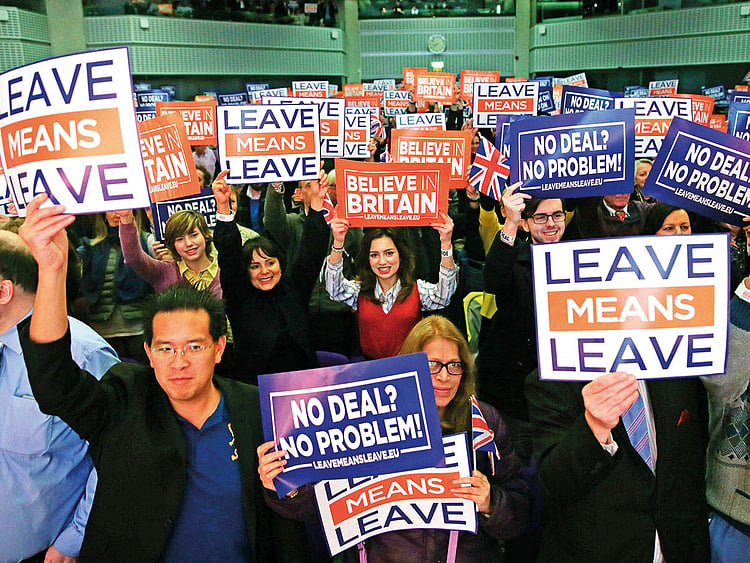Also In This Package
Despite a series of setbacks last week to the leadership and government of UK Prime Minister Theresa May, senior British cabinet ministers still believe their Brexit deal can be approved by parliament.
Originally, that deal was supposed to have been voted on by MPs on Tuesday, but the plan was never put to a vote as May postponed it, acknowledging she didn’t have enough MPs to back it.
With the UK due to leave the European Union (EU) in March 29, May postponed the key vote until early in the New Year — before a deadline of January 21.
Instead of voting on the Brexit bill on Tuesday, Conservative MPs voted on a party motion of no confidence in May — a divisive ballot that saw her win by 200 to 117 — meaning one-third of her party oppose her, and more so oppose the Brexit deal.
In an attempt to win more concessions from the EU, May spent Thursday and Friday in Brussels meeting the European leaders.
Speaking Saturday morning, Foreign Secretary Jeremy Hunt said the British parliament could back Prime Minister Theresa May’s deal if lawmakers received assurances from the European Union, but warned that a ‘no-deal’ Brexit was still on the table.
After May’s visit to Brussels, however, that likelihood seems remote.
May addressed the EU summit for an hour and, according to agency reports, succeeded in alienating many fellow leaders after making a series of ambitious proposals to appease her domestic critics, including a one-year time limit on the Irish backstop.
After May left the room, many leaders were despondent.
“This debate is sometimes nebulous and imprecise,” Jean-Claude Juncker, EU commission president said. “When it comes to the future relationship, our British friends need to say what they want, rather than asking us what we want.”
Another EU diplomat claimed that there was even a suggestion that it might have been better if May had lost Tuesday’s no confidence vote.
“She didn’t know what she wanted,” the diplomat said.
— With inputs from agencies
Sign up for the Daily Briefing
Get the latest news and updates straight to your inbox
Network Links
GN StoreDownload our app
© Al Nisr Publishing LLC 2026. All rights reserved.
